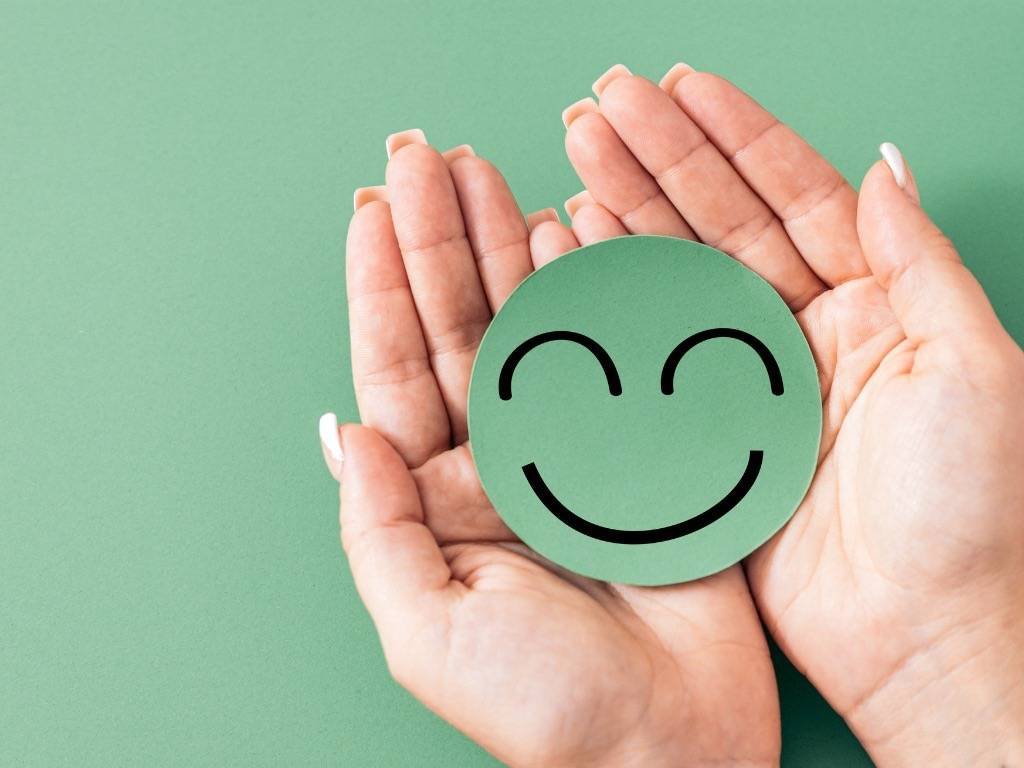The importance of mental well-being has grown a lot in recent years. Modern life’s pressures make finding balance more urgent than ever. Technology, work-life blur, and societal demands have raised awareness.
Mental health campaigns like #BellLetsTalk and figures like Prince Harry and Lady Gaga have highlighted the need. They push for open talks and daily mental health practices. This helps reduce stigma and promotes health.
Key Takeaways
- Growing recognition of mental well-being’s importance in overall health.
- Technology and societal pressures exacerbate the need for mental health awareness.
- Campaigns and public figures are pivotal in reducing the stigma surrounding mental health.
- Finding balance in a hectic world is essential for maintaining mental well-being.
- Integrating mental health practices into daily life supports long-term health.
The Importance of Mental Well-Being in a Fast-Paced World
In today’s fast world, knowing and valuing mental well-being is key. Life moves quickly, and finding balance is vital for a healthy mind. Mental health is crucial, touching every part of our lives.
Understanding Mental Health
Mental health covers our emotions, thoughts, and social life. It shapes how we think, feel, and act. This makes it vital for a balanced life. Studies link good mental health to happiness, showing its importance.
Impacts of a Fast-Paced Lifestyle on Mental Well-Being
Our always-connected world and desire for quick results cause stress and anxiety. Too much phone and social media use harm our mental health. They can lead to sleep loss, less productivity, and bad relationships.
Why Prioritizing Mental Health Matters
Valuing mental health is more than feeling good; it’s about living better. When we focus on mental health, we work better, have stronger bonds, and feel happier. Seeing mental health’s value helps us live a healthier, more balanced life.
Effective Stress Management Strategies
It’s key to know and use good stress management strategies for your health. Finding out what stresses you and using ways to relax can make life better. It also helps avoid long-term health problems.
Identifying Sources of Stress
First, you need to know where your stress comes from. It can be work, family, or money issues. Keeping a journal or thinking about your feelings can show you what stresses you most.
Techniques to Manage and Alleviate Stress
After finding out what stresses you, it’s time to use ways to handle it. Here are some proven methods:
- Exercise: Activities like walking or yoga can help by making you feel better.
- Meditation: It helps you stay in the moment and think less about worries.
- Time Management: Organizing your tasks and setting achievable goals can make you feel less stressed.
Benefits of Incorporating Stress Management into Daily Life
Adding stress management to your daily life can greatly improve your health. Regularly using these methods can help you sleep better, focus more, and feel happier overall.
| Stress Management Techniques | Benefits |
|---|---|
| Exercise | Improves mood, reduces stress hormones, promotes better sleep |
| Meditation | Reduces anxiety, enhances emotional health, fosters resilience |
| Time Management | Decreases overwhelm, enhances productivity, improves focus |
Using these strategies every day can make your life healthier and more enjoyable. It shows how important it is to manage stress for your long-term health.
Self-Care Tips for Busy Lifestyles
In today’s fast world, it’s key to find time for self-care. This is vital for maintaining wellness and bettering life quality. Here are some easy self-care tips for those with tight schedules:
- Prioritize Sleep: Make sure to get enough sleep by sticking to a regular schedule. Good sleep is crucial for maintaining wellness.
- Stay Hydrated: Drink water all day to keep your body and mind working well.
- Take Short Breaks: Use breaks to stretch, breathe deeply, or walk. This reduces stress and boosts productivity.
- Exercise Regularly: Add short workouts to your day to improve physical and mental health.
- Nourish Your Body: Choose healthy snacks and meals that support your body and mind.
Experts say even small self-care actions can greatly improve mental health. Knowing the self-care importance can change how you view busy lives.
“Self-care is not a luxury; it is a necessity for preserving mental health and achieving a balanced life.” – Dr. Jane Smith
Seeing the self-care importance makes these practices essential, not optional. Adding these habits to your daily life is crucial for maintaining wellness even when you’re busy.
Here’s a table with some quick yet effective self-care techniques:
| Technique | Action | Benefit |
|---|---|---|
| Deep Breathing | Take 5 minutes to practice deep breathing exercises. | Reduces stress and enhances focus. |
| Mindfulness | Spend 10 minutes on a mindfulness app. | Improves mental clarity and emotional regulation. |
| Quick Workouts | Engage in 15 minutes of physical activity. | Boosts energy and overall mood. |
| Hydration | Drink a glass of water regularly. | Keeps the body and mind hydrated and alert. |
Mindfulness Practices for Modern Living
In today’s fast-paced world, mindfulness offers a peaceful escape for our minds. It helps us stay present, away from the daily rush. By embracing mindfulness, we gain mental clarity and emotional balance, even in chaos.
What is Mindfulness?
Mindfulness means focusing on the now without judgment. It comes from ancient Buddhism and is now used in psychology to reduce stress. It helps us find calm in the midst of daily noise.
Simple Mindfulness Exercises to Try
Adding mindfulness to your life is easy. Here are simple exercises for any schedule:
- Breathing Exercises: Spend a few minutes each day focusing on your breath. Notice the sensations in your body.
- Body Scan: Lie down and mentally scan your body. Release any tension without judgment.
- Mindful Eating: Enjoy each bite, focusing on flavors, textures, and aromas. It makes meals more enjoyable.
Integrating Mindfulness into Your Daily Routine
Regular mindfulness practice improves mental clarity and emotional balance. Here’s how to make it part of your day:
- Begin with a short meditation to calm your mind.
- Add mindful moments to daily tasks like brushing teeth or walking.
- End the day by thinking of the good things that happened.
By making mindfulness a regular part of your life, you can find peace and presence. This makes dealing with modern life’s challenges easier and more graceful.
Promoting Emotional Wellness
Emotional wellness is key to a balanced and healthy life. It means knowing and expressing your feelings in a healthy way. This helps you deal with daily challenges.
To promote emotional wellness, you need to be active and thoughtful. Engage in activities that boost your emotional health.
Recognizing Emotional Health
Knowing the signs of emotional health is important. It includes being able to handle stress and express feelings well. Understanding these signs helps you find the right strategies to manage your emotions.
Regular self-reflection and mindfulness are helpful. They help you recognize your emotional health.
Building Emotional Resilience
Emotional resilience means bouncing back from tough times. To build this, keep strong social ties and practice positive self-talk. Also, set achievable goals.
These steps create a supportive space. Here, you can grow and face challenges with confidence.
Engaging in Activities that Promote Emotional Wellness
Many activities can improve emotional wellness. Creative arts like painting or writing help express feelings and reduce stress. Volunteering gives a sense of purpose and connects you with others.
Spending time outdoors also helps. It calms you and promotes emotional balance.
Coping with Stress and Pressure
It’s key to understand how our body reacts to stress. The autonomic nervous system is vital in our stress response. We can improve how we handle daily stress by fine-tuning it.
“The greatest weapon against stress is our ability to choose one thought over another.”— William James
Using proven stress-management strategies can help us relax and deal with tough situations. Deep breathing, muscle relaxation, and thinking differently about our thoughts are all helpful. Keeping a diary of stress can also help us find what triggers it and how to deal with it.
People in stressful jobs like healthcare, finance, and emergency services use special ways to manage stress. Doctors, for example, might meditate or exercise to handle the pressure of their work. These methods can help anyone reduce stress in their life, whether at work or at home.
| Professional | Stress-Management Strategy | Benefits |
|---|---|---|
| Healthcare Workers | Meditation | Improves Focus, Reduces Anxiety |
| Financial Analysts | Physical Exercise | Boosts Mood, Increases Energy Levels |
| Emergency Responders | Cognitive-Behavioral Techniques | Enhances Problem-Solving Skills, Lowers Stress |
Mental Health Resources
Finding the right mental health resources is key to staying well. You can look for professional help, use online tools, or build a strong support network. There are many ways to get the help you need.
Finding Professional Help
Finding the right mental health professionals is important. Start by asking your doctor for recommendations. You can also use directories like the American Psychological Association to find licensed therapists and psychiatrists.
Getting professional help means you get treatments that work. You’ll also get advice from experts.
Utilizing Online Resources and Support
Today, there are many online tools and apps for mental health. Sites like BetterHelp and Talkspace let you talk to therapists online. Apps like Headspace and Calm help with stress and anxiety through meditation.
Online resources can help you in addition to traditional therapy. They offer quick help and ongoing support.
Building a Support Network
Having a strong support network is vital for your mental health. Surround yourself with family and friends who support you. Joining support groups, online or in-person, can connect you with others who understand you.
A good support network helps you through tough times. It makes sure you’re not alone in facing mental health challenges.
Conclusion
Taking care of our mental health is crucial in today’s fast world. We’ve learned how a busy life can affect our minds. By managing stress and practicing self-care, we can find balance and live better.
Mindfulness and emotional wellness are key to this journey. They help us deal with stress and build strength. It’s also important to use mental health resources like therapy and online support.
Learning more about mental health is vital. As society focuses more on mental well-being, we’re hopeful for a better future. With more knowledge and resources, finding mental balance will become easier for all of us.
FAQ
What is the importance of mental well-being in a fast-paced world?
Mental well-being is key for our health, especially in today’s fast world. It helps us balance life, manage stress, and keep our minds healthy. This leads to better work, relationships, and happiness.
How does a fast-paced lifestyle impact mental well-being?
A fast life often means always being connected, high demands, and wanting things now. This can cause stress and anxiety. If not handled well, it can harm our mental health.
What are some effective stress management strategies?
First, know what stresses you. Use journaling to figure it out. Then, try exercise, meditation, and better time management. These can help reduce stress and improve your health.
Can self-care benefit individuals with busy lifestyles?
Yes, it can. Quick self-care steps can really boost your mental health. Making self-care a priority is key to staying productive and healthy, even when life is busy.
What is mindfulness and how can it be practiced in modern living?
Mindfulness means being fully in the moment. Simple acts like deep breathing or meditation can fit into your day. They help lower stress and clear your mind.
How can one promote emotional wellness?
Emotional wellness comes from healthy feelings, strong connections, and positive thoughts. Doing creative things, helping others, and enjoying nature also help.
What are some strategies for coping with stress and pressure?
First, understand how your body reacts to stress. Use deep breathing, muscle relaxation, and good time management. Learning from those in stressful jobs can also help.
Where can one find mental health resources?
You can find help through health organizations and online tools. Having a strong support network of family, friends, and groups is also vital for mental health.






